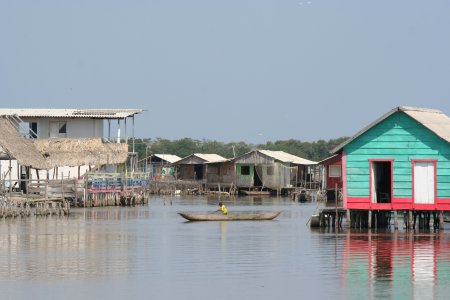Wetlands crucial in addressing climate change

IGO Statement to UNFCCC COP23 on behalf of the Ramsar Convention on Wetlands
Secretary General Martha Rojas-Urrego
Mr/Madam Chair, Your Excellencies, ladies and gentlemen:
I am honoured to make this statement on behalf of the Ramsar Convention on Wetlands at this crucial meeting in Bonn as the international community moves to implement the historic Paris Agreement.
The urgency to accelerate action and step up ambition to reach the long-term goals agreed in Paris has been rightly stressed during these past days. The conservation, sustainable use and restoration of wetlands can contribute significantly to the achievement of the Paris ambitions as efficient and effective nature-based solutions for mitigation of climate change and adaptation to its impacts.
Wetlands are the planet’s most effective carbon sinks and represent unrealised potential for climate mitigation. Peatlands are particularly important; they store twice as much carbon as the entire world’s forest biomass. Drained peatlands alone are responsible for 5% of the global greenhouse gas emissions. Coastal wetlands - mangroves, tidal flats and seagrass beds – now being referred to as “blue carbon ecosystems” also play an important role in carbon sequestration.
Wetlands make communities more resilient to the impacts of climate change. They provide buffers against sea level rise and storm surges, and reduce the impacts of floods, droughts and cyclones.
Importantly, human adaptation to the impacts of climate change cannot happen without wetlands. Wetlands are the primary source of water for human consumption, energy and agriculture in all its forms. And they provide important social and economic services, with billions of people depending on wetlands for their livelihoods.
Yet, despite all the critical services that wetlands provide, 64% of the world’s wetlands have been lost in the last century. We continue to lose wetlands, at the rate of 1% per year, which is faster than the rate of deforestation. This must change. We need to stop and reverse this trend, to ensure that wetlands continue to provide multiple benefits to people.
And we need to use the potential of wetlands to mitigate and adapt to climate change by including them in Nationally Determined Contributions and in strategies to achieve the goals of the Paris Agreement.
The Ramsar Convention on Wetlands, an intergovernmental treaty with 169 Contracting Parties, provides a ready platform for the conservation and wise use of wetlands and to contribute to achieving the Paris Agreement ambition and the 2030 Sustainable Development Agenda. The 13th meeting of the Conference of the Parties to the Ramsar Convention, to be held in 2018, will provide an important opportunity for countries to elevate the conservation of wetlands to realize the multiple benefits they provide for sustainable development and for climate adaptation, mitigation and resilience.